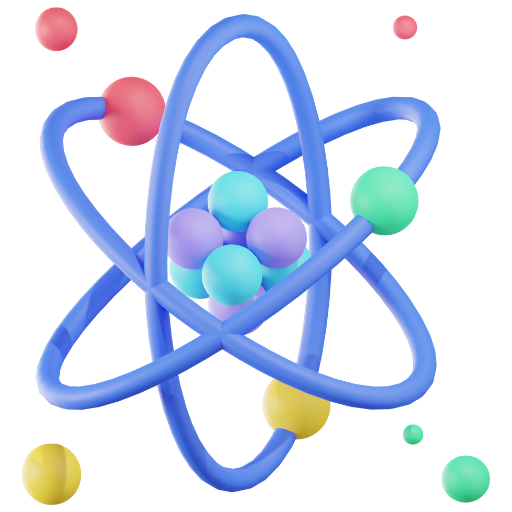Particularly in scientific classes, artificial intelligence is altering how students finish their homework. I will discuss in this post the top artificial intelligence solutions available to help with challenging scientific homework tasks. For both teachers and students, these resources are priceless for everything from clarifying difficult ideas to working through equations.
Table of Contents
- Why Use AI for Homework?
- Top AI Tools for Science Help
- How AI Solves Science Problems
- The Future of AI in Science Homework Assistance
Why Use AI for Homework?

Imagine grappling to grasp the human heart. Although you are attempting to recall the several chambers and valves and are looking at diagrams, it all feels overwhelming. Imagine a gizmo that could show you how the heart pumps blood all across the body, so bringing it to life. For students particularly in science disciplines, this is where artificial intelligence techniques can be quite beneficial.
Tools driven by artificial intelligence can help one understand difficult ideas like the human heart far more easily. You can interact with 3D models, view animations, and even complete tests to gauge your knowledge instead of only glancing at still images. These resources can point up areas where you might need more assistance and offer customized explanations fit for your learning style. Imagine it as having a virtual tutor on call around-the-clock who can divide difficult material into reasonable bits, respond to your inquiries, and provide extra help.
Still, you could be wondering, Isn’t this cheating? Using artificial intelligence for assignments does bring legitimate questions regarding academic honesty. These instruments are not, however, meant to be a shortcut or substitute for real learning. The intention is to deploy artificial intelligence tools sensibly in tandem with conventional education approaches. Imagine learning a difficult idea with an artificial intelligence technology, then using that knowledge to finish a project or solve an issue. This method promotes critical thinking and a better knowledge, thereby enabling you to really learn the content. Of course, the goal is lost if you complete your homework for you depending just on AI tools. Recall, artificial intelligence for homework is meant to improve rather than replace your educational process.
Using AI for Homework Responsibly
For your homework, then, how can you apply AI techniques ethically and practically? Here are some ideas:
- Don’t just copy and paste: Use AI tools to understand the concepts, then put the information into your own words.
- Cite your sources: If you use information from an AI tool, cite it properly.
- Check the accuracy: Not all AI tools are created equal. Make sure you’re using reliable sources.
- Ask your teacher for guidance: If you’re unsure about how to use AI tools for homework, talk to your teacher.
AI Tools That Can Help You Learn
Many artificial intelligence applications can assist with scientific assignments. Some well-liked choices consist in:
- Khan Academy: This website offers free educational videos and exercises on a wide range of subjects, including science.
- Wolfram Alpha: This powerful computational knowledge engine can answer complex questions and generate reports on various scientific topics.
- Duolingo: This language learning app uses AI to personalize lessons and make learning more engaging.
I advise you to investigate several artificial intelligence applications and observe how they might improve your grasp of scientific ideas. Recall that the secret is to employ artificial intelligence tools sensibly and morally to improve your educational process.
Are you ready to increase your knowledge of science?
Top AI Tools for Science Help

Imagine trying to grasp a difficult science concept, then feeling lost in a sea of graphs and equations. Having a science homework helper who could simplify those tasks and increase the enjoyment of learning would be fantastic. Thanks to developments in artificial intelligence (AI), we now have strong AI tools that can offer interactive exercises, visualized complex subjects, and even tailored explanations. These artificial intelligence tools are changing our approach to science learning, turning textbooks and fixed graphics into interesting and dynamic encounters. Let’s investigate some of the most often used AI tools for science homework and discuss how artificial intelligence might simplify learning science.
How AI Makes Learning Science Fun and Easy
Recall those seeking to grasp the complicated purposes of the human heart and those irritating times? Imagine this: if you could design a 3D model of the heart using artificial intelligence techniques, then you could interact with it and view its valves, chambers, and blood flow. AI tools may create animations illustrating how the heart pumps blood around the body, therefore facilitating the understanding of these difficult processes. Consider these artificial intelligence technologies as virtual teachers, dissecting difficult material into reasonable bits and providing clear, useful explanations for many types of students.
For instance, I recall having trouble in high school understanding of the cardiovascular system. My textbooks felt weighty, and I struggled to visualize how blood moved about the body. I then came into an artificial intelligence technology enabling interaction with a 3D heart model. It was really amazing! The blood went through every chamber, the valves opened and closed, and even the contraction and relaxation of the heart muscles was evident. This graphic depiction made all the difference; at last I knew how the circulatory system operated.
Popular AI Tools for Science Homework
Several artificial intelligence applications exist to enable pupils to overcome such difficult scientific obstacles. Here are some illustrations:
- Khan Academy: This popular platform offers a wealth of free educational videos and exercises covering various subjects, including science. Khan Academy is a fantastic resource for self-paced learning, providing clear explanations and interactive practice exercises.
- Wolfram Alpha: This powerful computational knowledge engine can answer complex questions and generate reports on various scientific topics. Students can use Wolfram Alpha to research and explore scientific concepts in detail, solve complex equations, and generate graphs and visualizations to aid their understanding.
- Duolingo: While primarily known for language learning, Duolingo utilizes AI to personalize lessons and make learning engaging. Its gamified approach can be a fun way for students to enhance their scientific vocabulary and understanding, particularly for terms and concepts they may find challenging.
Recall that these technologies are meant to augment rather than replace conventional teaching strategies by giving students more tools and support. AI-powered science resources can be a wonderful help for your science journey, whether your science concept is difficult, you desire more in-depth exploration of scientific subjects, or you just need more practice.
How AI Solves Science Problems

Imagine grappling with a difficult scientific issue. Feeling bewildered and overwhelmed, you are staring at equations, diagrams, and an information mountain. Having an artificial intelligence instructor to assist you through the process, dissect those difficult ideas, and offer tailored answers would be fantastic. Thanks to artificial intelligence (AI), students today have access to strong AI learning tools that can enable them to address even the most difficult science challenges.
These artificial intelligence learning tools are altering our methods of approaching scientific education. Students no longer have to rely just on fixed texts and stiff classroom lectures. AI may break down difficult issues into smaller, simpler, more manageable steps, help explain complicated calculations, and simplify abstract ideas. Let’s explore how technologies for artificial intelligence learning are altering the landscape for teachers and students both.
Using AI Tools for Science Homework
The capacity of artificial intelligence learning systems to customize learning is among their main benefits. Imagine artificial intelligence examining your shortcomings and strengths to design a customized learning path for you. By use of customized explanations, examples, and practice problems, these resources may guarantee that every learner has the means necessary to achieve.
If you find it difficult to grasp the idea of gravity, for instance, an artificial intelligence learning tool might show you a 3D simulation illustrating how objects of varying mass interact. Then you could play about with the simulation, varying the variables and tracking the outcomes. This interactive technique can help you grasp difficult ideas in a way that conventional textbooks or lectures might not and make studying more interesting.
Consider artificial intelligence learning tools like having a personal tutor on demand twenty-four-hour. All at your own speed, they can respond to your inquiries, give concise explanations, and offer comments on your development. This accessibility helps students to become more autonomous learners and confident problem solvers, therefore enabling them to take responsibility for their education.
AI Learning Tools: Helping Students and Teachers
Additionally promoting critical thinking and creativity are AI learning tools. Imagine an artificial intelligence learning tool enabling your own virtual experiment design and construction. All within a secure and interesting digital environment, you might investigate many scientific ideas, test hypotheses, and examine data. This kind of practical knowledge can inspire a desire of scientific inquiry and help one to grasp the scientific method.
Start with PhET Interactive Simulations. From physics and chemistry to biology and earth science, this site provides a vast spectrum of interactive science simulations. Through these interesting and interactive simulations, students could investigate ideas including electricity and magnetism, chemical reactions, or the movement of tectonic plates. These simulations are powered by artificial intelligence algorithms, which also adjust to every learning style and offer individualized feedback. Using AI homework help as they do tasks, this is a great approach for pupils to study science.
Khan Academy, which provides a tailored learning environment complete with an extensive library of instructional videos, tests, and exercises, is another example. Khan Academy can monitor students’ development, point up areas needing more work, and offer individualized recommendations for learning resources using artificial intelligence. This platform also employs artificial intelligence to produce AI tools for homework to help students grasp difficult ideas and finish their homework.
Teachers also find great advantage in these AI learning resources. Imagine employing artificial intelligence to produce interesting AI science homework with individualized assessment of student comprehension. AI allows teachers to examine student data, pinpoint areas in which each student requires extra help, and modify their curricula to fit the particular needs of every student.
AI learning technologies can be rather helpful for students acquiring necessary abilities for the future in a world when knowledge is always changing and developing. In a world when scientific literacy is more crucial than ever, these tools help equip kids to think critically, evaluate facts, and solve problems efficiently, so arming them for success.
As artificial intelligence develops, we should anticipate much more creative AI learning tools to surface, therefore revolutionizing our knowledge and perspective of the surroundings. AI is leading the exciting transformation that is about to define education. Would you like to travel this fascinating trip? Investigate artificial intelligence learning resources now to explore how they might improve your educational process!
The Future of AI in Science Homework Assistance

Imagine a time where learning science is no more of a challenge. Rather, AI-powered tools for homework can help you traverse even the most difficult ideas, therefore transforming learning into an interesting and successful process. AI in education promises to transform students’ approaches to their homework, particularly in science.
We’re transcending the days of mass-produced textbooks and fixed lectures. AI-powered science help can customize instruction by matching materials to particular needs and learning styles. Imagine grappling with the idea of photosynthesis. An artificial intelligence tool might show it in a way that speaks to you. The program would provide interactive graphs and animations since maybe you learn best visually. Alternatively you might want a hands-on approach, and the tool would let you investigate the process in action and do virtual experiments.
The Power of Personalized Learning
The ability of AI in education to customize learning opportunities is absolutely transforming. AI-powered technologies examine your talents and shortcomings, creating a learning road especially fit for you. They point up areas in which you require more guidance and offer focused materials to enable you to master those ideas. An AI science homework application might identify, for instance, that you find cell division challenging. It might then recommend pertinent movies, interactive lessons, or even individualized tutoring sessions concentrated on this particular subject.
Unlocking Potential Through AI
AI-powered science help can enable pupils acquire better knowledge of scientific ideas and critical thinking ability. Encouragement of questions, design of experiments, data analysis, and conclusions drawing, they can help students negotiate the scientific inquiry process. This practical approach not only clarifies the content but also fosters a passion of learning that goes much beyond the classroom.
All set to release your learning potential? Investigate the universe of AI-powered learning tools right now.











